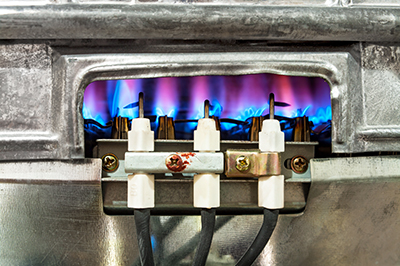
Buying a new water heater is a part of life if you’re a homeowner. Fortunately, they have a long shelf life, but inevitably, you will have to replace the one in your home. Once that time comes, you may be faced with purchasing a gas or electric water heater. You will ask yourself what the difference is between the two.
There are a variety of pros and cons to each type of water heater. Before making a purchase, there are many things to consider: cost, energy efficiency, environmental impact, safety, installation, or longevity. Ultimately, finding what best fits your needs and capabilities is good. Our guide will help you make a more informed decision.
How Do Gas Water Heaters Work?

A gas water heater works via a duo or thermostat and thermocouple. When the thermostat senses the water temperature inside the tank falls below a certain degree, a signal is sent to the gas control valve. The thermocouple determines if the pilot light is on; gas can flow to the burner and ignite.
The burner heats the bottom of the tank and rises as the water heats up. The icy water at the top of the tank will sink to the bottom, creating a circulation cycle that warms all the water inside the heater. The gas control valve will turn off once the water reaches a pre-set temperature.
How Do Electric Water Heaters Work?
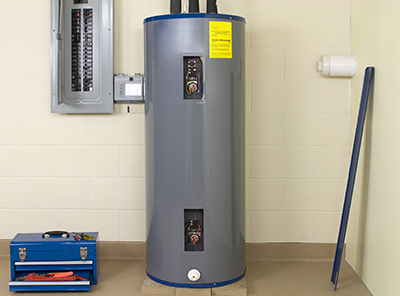
The thermostat is flush with the water tank in an electric water heater. When the thermostat senses the temperature inside the tank has dropped below the pre-determined setting, it will send electricity to the heating element. The heating element is dropped in the water inside the tank and heats up, like an electric stove. Once the correct temperature is reached, the power is shut off the heating element.
Some electric water heaters feature a dual heating element system where both the top and bottom of the tank have their heating element. They alternate heating the top and bottom as they each have their thermostat.
Gas vs. Electric Water Heaters: Factors to Consider
Once you have determined what kind of heater you are interested in, you can consider all the other factors that can dictate whether you want an electric or gas water heater.
Cost of Hardware & Maintenance
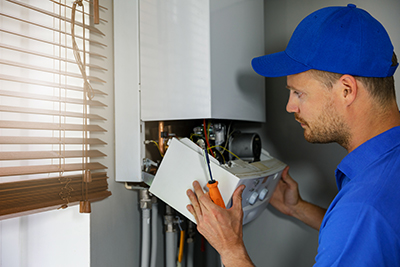
The cost may seem like a big part of your purchase, but it is more about how much you can afford upfront. Gas water heaters have a higher initial cost than electric options. On the other hand, gas models are cheaper to operate than electric heaters, as natural gas is cheaper than electricity. Gas water heaters will have a more affordable overall cost in the end.
As for maintenance of the heater over its lifetime, they are both similar again. Both need the water tank flushed periodically to ensure sediment does not settle in the bottom of the tank. Gas heaters need their gas lines and tanks checked regularly to prevent leaks or sediment buildup. Maintenance on a gas heater will cost a little more over time, but it is not much.
Energy Factor Ratings
The water heater’s efficiency is related to the cost of your purchase, so you will want to pay attention to the model’s energy factor rating. Electric heaters are usually more efficient than gas water heaters due to how they operate. The heating elements in an electric water heater are contained in the tank, so there is less heat loss.
A gas water heater vents the spent natural gas, which causes some heat loss. Some gas models have an Energy Star label, meaning they are highly energy-efficient and use far less energy.
Difficulty of Installation
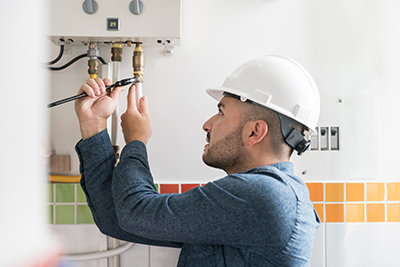
Replacing a gas or electric water heater requires two diverse levels of expertise, and depending on your level of knowledge, it may be best done by a professional. An electric water heater only requires swapping out some electrical wires, so it could be done yourself if you feel you can. A gas water heater is a much different process. You need to disconnect and reconnect a gas line, and you might need to maneuver the lines. Gas water heaters also need to be vented to the outside, and if you do not already have venting lines, it might not be easy.
If you are considering switching from electric to gas or vice versa, you must determine if your home can accommodate a different type of water heater. If your home has been fitted with gas or electricity, you will go with the same option you currently have. Everyone has electricity, and the majority have gas. If your home lacks natural gas access, an electric heater would be your only option. However, if you live in a rural area, you can use a conversion kit to use propane with their gas water heater.
Safety
Safety is more of a concern with a gas water heater. A gas line and an open flame are required to run a gas water heater; you risk a gas leak and explosion. There is also the concern of carbon monoxide leaks from the gas line. You do not have to worry about those risks with an electric water heater.
Environmental Considerations
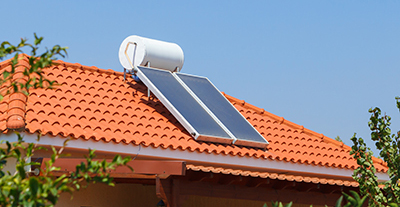
You may want to consider the environmental impact of replacing a water heater. Electric water heaters are much better for the environment as they are more energy-efficient. They also can be powered via renewable energy sources, such as solar or hydroelectric power. Conversely, some electricity is supplied by coal or nuclear power plants. Gas water heaters require natural gas, which needs to be pulled from the earth and releases many greenhouse gases into the atmosphere.
Longevity
When buying a water heater, you want one that will last a long time without needing to replace it. Due to the cleaner operation of electric water heaters, they usually last 10 to 15 years, while gas water heaters’ lifespan is 8 to 12 years.
Time Taken to Heat Water
Gas water heaters usually heat water quicker due to their combustion operation than an electric water heater’s heating elements warm up slower. Because of the combustion of a gas water heater, their recovery rate and first-hour rating are higher than an electric heater.
Gas vs. Electric Water Heaters: What Should You Buy?
In the end, buying a water heater can be a prolonged process, but be sure to focus on the specific needs of your home. Will you need a lot of water for multiple family members, leading to more showers, laundry, and cooking? There are fewer critical factors, such as warranties, after-sales service, or brand names. Check Acme Tools for many water heater models from Reliance, including gas and electric, tankless, and propane options.

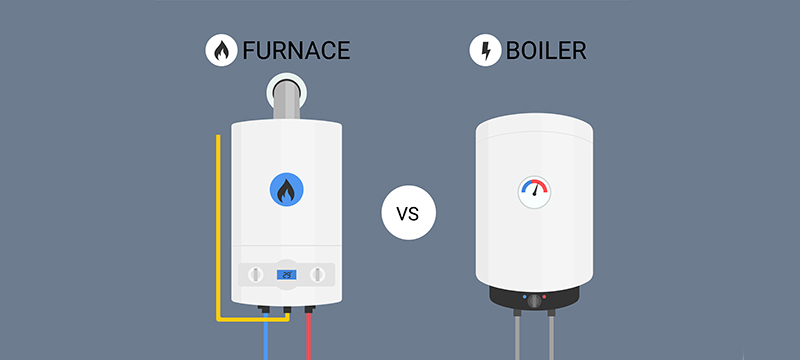



One Comment
Burnice Bauch
December 14, 2022 at 8:31 amNice Blog!! The content you have shared is very elaborative and informative. Thanks a lot for sharing such a great piece of knowledge with us.